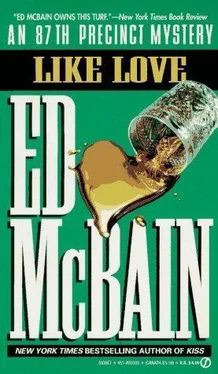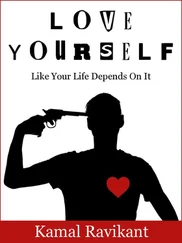* * * *
When the stenographer delivered the typed confession, Amos Barlow signed it and went limping out of the room with a patrolman who took him downstairs to the detention cells where he would be kept overnight until his arraignment the next morning. They watched him as he limped out of the squadroom. They could hear the sound of his cane on the iron-runged steps leading to the downstairs level. They listened to it without a sense of triumph, without even a sense of completion.
“You fellows want some coffee?” Miscolo asked, standing just outside the door of the clerical office.
“No, thanks, none for me,” Carella said.
“Cotton? Some tea?”
“Thanks, Alf. No.”
The men were silent. The clock on the wall read ten minutes to one. Outside the grilled windows of the squadroom, a light, early morning rain had begun to fall.
Carella sighed heavily and put on his jacket. “I was just sitting here and wondering how many people commit murder on the spur of the moment, and get away with it. I was just wondering.”
“Plenty,” Hawes said.
Carella sighed again. “You got any brothers, Cotton?”
“No.”
“Neither have I. How can a man kill his own brother?”
“He didn’t want to lose him,” Hawes said.
“He lost him,” Carella answered flatly, and then he sighed again and said, “Come on, I’ll buy you a beer. You want a beer?”
“All right,” Hawes said.
They went down the corridor together.
Outside the clerical office, they both stopped to say good night to Miscolo. As they came down the iron-runged steps to the first floor, Carella said, “What time are you coming in tomorrow?”
“I thought I’d get in a little early,” Hawes said.
“Trying for a line on Petie?”
“He’s still with us, you know.”
“I know. Anyway, Bert thinks he’s got a lead on that numbers bank. We may be hitting it tomorrow, and that’ll shoot the whole damn afternoon. Be a good idea to get in early.”
“Maybe we ought to skip the beer.”
“I’d just as soon, if it’s okay with you,” Carella said.
It had begun raining harder by the time they came out into the street.












